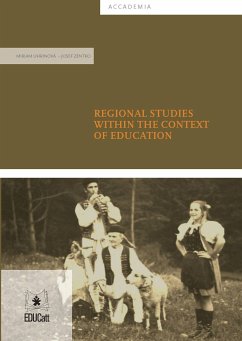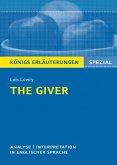This era is bringing us many scientific and technical conveniences, which are coming into each individual’s life at a relentless speed. These modern improvements, methods and procedures are to a large extent related to the educational process within contemporary education. In an era of continuous technical development and the improvement of IT and communication resources, it is important to stop and think about the important fact that at present there is a valuable cultural, historical and natural heritage in our immediate surroundings. It is necessary to consider this fact related to the real need for knowledge and the preservation of a cultural and natural heritage. Learning about culture plays an important role in the development of human personality. One possibility is the correct integration of Regional Studies in the educational process. In the current area ofeducation, Regional Studies is at the forefront and also plays an important role in getting to know the national heritage. The presented monograph is one of the outcomes of KEGA project no. 042 KU – 4/2011 European Values and Cultural Heritage – a New Challenge for Primary and Secondary School Education. It analyses the area of Regional Studies in the context of contemporary education, within a uniform theme, in pre-school, primary and secondary education. The authors are expressing their opinion about the status of values and cultural heritage in today’s education. The content, as well as the actual basis of the work, consists of selected theoretical aspects relating to the subject matter. The theoretical analysis is based upon the results of empirical research that is focused on identifying the level of student knowledge, in the Pre-school and Elementary Pedagogy study program, related to the knowledge of the curriculum content in Regional Studies, as well as finding out students’ opinions on Regional Studies in the context of the educational process. Conceptually, the monograph is divided into eight main chapters. The first chapter concentrates on the theoretical starting points of Regional Studies, as well as explaining the basic definitions of regions. The second, third and fourth chapters show historical, cultural and natural heritage within different themed areas. In these chapters, the authors look at history, state and municipal symbols and actually teach about patriotism. They also characterize the spiritual and material folk culture, with its fundamental aspects and contexts. In the fourth chapter, they look at the presentation of natural heritage, with regard to the educational trails and protected areas. In the fifth chapter, an analysis of Regional Studies is introduced in the context of the educational process. The didactic aspect of Regional Studies forms the content of chapter six. It looks at selected methodologies and organisational forms of teaching. The seventh chapter is more practically focused, showing us how to apply regional features to the educational process. The last chapter presents an empirical section focused on Regional Studies in the context of the educational process. We believe that the presented monograph, which is both professionally and theme focused on Regional Studies, will evaluate aspects that are, in the modern age, an essential part of the fundamental cultural and values literacy in contemporary education, as well as in society. (dall'Introduzione dell'Autore)
Bitte wählen Sie Ihr Anliegen aus.
Rechnungen
Retourenschein anfordern
Bestellstatus
Storno









